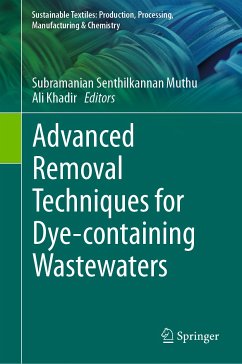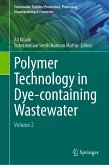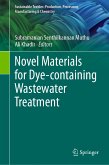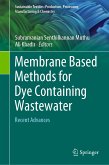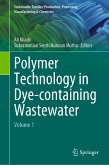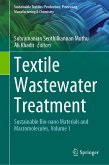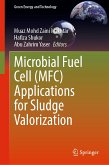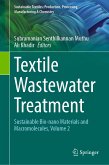The book presents a sequential approach for the treatment of dye wastewater, presenting state-of-the-art techniques based on recent findings. The release of these dyes into the environment is a major threat due to their toxicity, mutagenicity and carcinogenicity and their biotransformation products. It has been at least two decades since researchers have been trying to find interactions between dye molecules and water media, and find new purification methods. This book plays an important role in this field by highlighting the cutting edge results in dye removal and remediation, and discusses in detail the application of various physical, chemical, and biological techniques for the removal of pollutants from water.
Dieser Download kann aus rechtlichen Gründen nur mit Rechnungsadresse in A, B, BG, CY, CZ, D, DK, EW, E, FIN, F, GR, HR, H, IRL, I, LT, L, LR, M, NL, PL, P, R, S, SLO, SK ausgeliefert werden.

